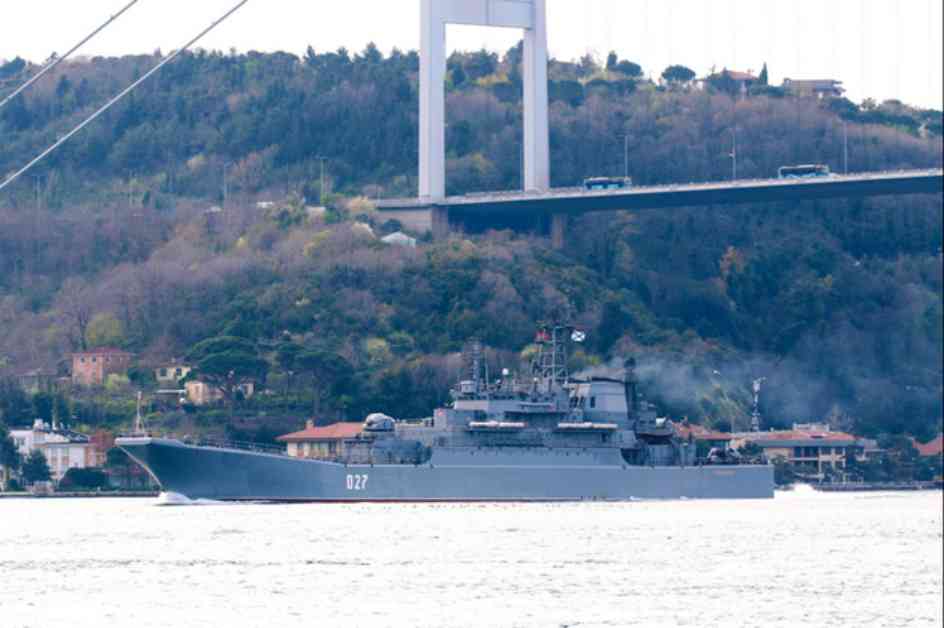**Challenges Preventing Russia from Accessing Naval Base in Syria**
The Kremlin finds itself in a quandary as it struggles to evacuate troops and equipment from its only overseas base in Tartus, Syria. Reports from Tuesday indicated that Syria’s new leadership is barring entry to Russia’s five naval vessels at the port, throwing a wrench in the evacuation plans. This development has significant implications for Russia’s military presence in the Middle East and Africa, unraveling decades of strategic planning and cooperation.
Stuck in International Waters
Local sources have identified the five ships awaiting clearance in international waters east of Tartus, including the military cargo ships Sparta I, Sparta II, and General Skobolev, along with the amphibious assault ships Ivan Gren and Alexander Otrakovsky. These vessels, critical for logistical operations, are now stranded in limbo, unable to dock and fulfill their mission.
Failed Negotiations and Technical Woes
Despite ongoing talks between Moscow and Damascus regarding the port lease, progress has been sluggish, as evidenced by the lack of movement in ship activity data. The General Skobolev’s recent arrival in Levantine waters, joining the other ships off the coast of Tartus, signals a standstill in negotiations. Compounded by technical issues such as fuel leaks and freshwater shortages on naval assault ships, the situation grows increasingly dire.
Political Implications and Geopolitical Shifts
The reluctance of Syria’s new leadership, represented by the group Hayat Tahrir al-Sham (HTS), to allow Russian naval vessels entry into Tartus reflects a broader recalibration of alliances and priorities in the region. As HTS consolidates control over ports and maritime security, Russia’s foothold in Tartus appears to be slipping, with potentially far-reaching consequences for regional stability and power dynamics.
Uncertain Future and Diplomatic Dilemmas
As tensions escalate and logistical challenges mount, the fate of Russian military assets in Tartus hangs in the balance. The inability to evacuate heavy equipment and supplies by sea poses a significant dilemma, with potential repercussions for both Russian and Syrian forces. Amidst diplomatic impasses and technical setbacks, the path forward remains uncertain, raising pressing questions about the future of Russian presence in Syria.
In the midst of geopolitical maneuvering and strategic impasses, the human cost of these challenges cannot be overlooked. Behind the headlines and political posturing lie real stories of soldiers and civilians caught in the crossfire of international conflicts. Each ship stranded offshore represents not just a logistical setback but a human drama unfolding at sea, with lives and livelihoods hanging in the balance. As world powers jockey for influence and control, it is crucial to remember the individuals impacted by these high-stakes maneuvers, whose fates are intertwined with the geopolitical chessboard.

















